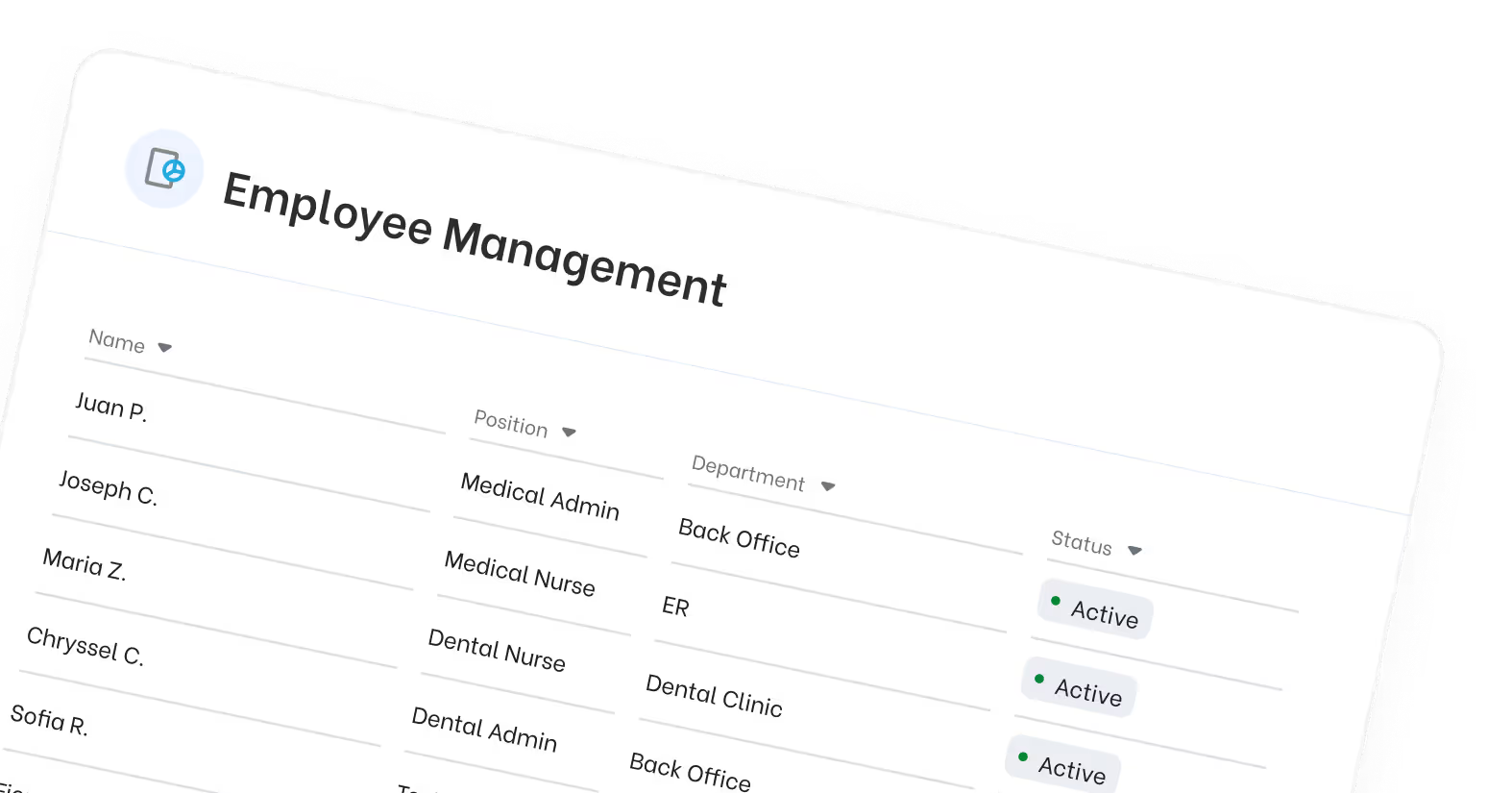Reducing Burnout in Healthcare Teams: Can Virtual Staffing with MedVirtual Help?

Burnout in healthcare isn’t just common, it’s growing. Long hours, high stress, and overwhelming administrative tasks are pushing doctors, nurses, and support staff past their limits. This challenge affects the entire healthcare industry, which is rapidly evolving and increasingly relies on innovative solutions to support its professionals.
MedVirtual offers a practical solution: trained virtual medical assistants who handle routine non-clinical work so providers can focus on patient care.
This page explores how MedVirtual’s commitment to supporting healthcare teams and advancing solutions for burnout through its virtual staffing model helps reduce burnout, improve efficiency, and sustain a healthier work environment.
Key Takeaways
- Burnout in healthcare is driven by long shifts, admin overload, and emotional fatigue, increasing the risk of provider burnout.
- Virtual assistants reduce this pressure by handling routine administrative work.
- Success requires clear onboarding, task alignment, and ongoing communication.
Understanding Burnout in Healthcare Teams
Burnout affects both the emotional health and daily performance of healthcare staff. It often presents as:
- Emotional exhaustion
- Reduced effectiveness
- A growing sense of detachment from patients
Behind it are the long hours, rising documentation demands, and constant multitasking, conditions that are becoming the norm in most healthcare environments. These challenges are common across the medical field.
How Virtual Medical Assistants Reduce Burnout
Virtual medical assistants provide remote administrative support that directly addresses the workload contributing to burnout. Outsourcing administrative duties to a medical virtual assistant can alleviate provider workload by delegating appointment scheduling, patient records management, and insurance verification. They handle high-volume, low-complexity tasks that would otherwise consume hours of a provider’s day, and assist providers in refocusing on patient care.
Key Tasks Handled
- Scheduling and calendar management
- Patient records and documentation updates
- Insurance verification and medical billing
- Follow-up coordination and reminder management
- Email and phone communication support
- Administrative duties
By taking over these responsibilities, virtual assistants allow providers to refocus on patient care, which improves morale and reduces daily stress.
Benefits of MedVirtual’s Staffing Solutions
MedVirtual trains and deploys healthcare-specialized virtual assistants who integrate smoothly into practice workflows. Our comprehensive services provide end-to-end support for healthcare businesses, including administrative assistance, billing support, and staffing solutions.
By leveraging virtual assistants instead of relying solely on in-house employees, practices can streamline operations and improve patient care. This model creates immediate and long-term benefits for clinical teams.
1. Cost Reduction
Hiring virtual assistants offers significant cost savings compared to traditional hiring, as they reduce overhead by replacing or supplementing in-house administrative roles. Practices save on salaries, benefits, office space, and training. Tasks like billing and claims processing are completed faster and with fewer errors, which reduces revenue leakage.
2. Better Work-Life Balance
By offloading administrative tasks, virtual assistants empower providers to achieve a more sustainable workload, giving them greater control over their schedules and responsibilities. As a result, providers experience fewer interruptions and more focus during the workday. This shift supports a more sustainable workload and improves job satisfaction across the team.
3. Improved Patient Care
By delegating routine administrative tasks to virtual assistants, healthcare providers can serve more patients efficiently, reducing their overall workload. With less time spent on documentation and more time available for patients, care quality improves. Shorter wait times, better communication, and more attentive providers lead to stronger patient relationships and higher satisfaction scores.
How to Implement Virtual Staffing with MedVirtual
MedVirtual’s onboarding process is designed to align support with your practice’s priorities. Before getting started, schedule a consultation with MedVirtual to discuss your practice’s needs and pricing. Here’s how to implement it successfully:
Step 1: Assess Your Admin Load
Identify where staff time is being consumed by non-clinical work, paying close attention to your practice's specific administrative workload. Focus on tasks that can be delegated without disrupting care delivery.
Step 2: Choose the Right Assistant
MedVirtual matches the right VAs (virtual assistants) to your needs based on task requirements, communication style, and schedule compatibility.
Step 3: Train and Integrate
Assistants are trained on your specific systems, documentation protocols, and communication preferences. A structured onboarding process ensures a smooth start and builds trust with internal staff.
Results from Real Healthcare Teams
Small Clinic Case Study
A family clinic reduced provider burnout by 30% and increased patient satisfaction scores after integrating a MedVirtual assistant. Admin workload dropped, freeing staff to focus fully on care delivery.
Large Hospital Testimonial
A hospital system saw improvements in workflow speed and patient communication within the first 60 days. Doctors reported less mental fatigue and greater satisfaction with their workday structure.
Overcoming Common Challenges
Virtual staffing requires more than just delegation. Practices must address clear communication to effectively reach and engage your target audience, ensuring that marketing strategies and social media management align with the needs of your intended demographic.
Communication
Use documented workflows, regular check-ins, and shared platforms to ensure consistent communication and keep in-house and virtual teams aligned.
Technology Integration
Ensure compatibility between your EHR, communication tools, and any scheduling or billing systems. A phased rollout can reduce friction and help teams adjust gradually.
What’s Next: The Future of Virtual Staffing in Healthcare
Virtual assistants are not a temporary fix, they’re becoming a core part of healthcare operations. The growing importance of medical virtual support is evident as healthcare practices increasingly rely on remote professionals to handle administrative and patient management tasks. The demand is accelerating due to two trends:
By embracing virtual staffing solutions, practices can reduce administrative burden and prevent burnout, helping their practice thrive in a changing healthcare landscape.
1. Growth of Telemedicine
As virtual consultations increase, so does the need for remote support staff to manage patient flow, coordinate care, and handle communication tasks.
2. Rise of AI and Automation
MedVirtual’s assistants are trained to work alongside emerging AI tools to streamline repetitive tasks. This pairing boosts productivity and accuracy, positioning providers to meet growing patient expectations.

Take Action Now: Reduce Burnout with MedVirtual’s Virtual Assistants
Burnout in healthcare is a systemic issue that significantly affects medical professionals, leading to decreased efficiency and patient care.
Virtual staffing offers a direct and measurable intervention. MedVirtual’s trained medical virtual assistants relieve providers of repetitive administrative work, including managing patient records and updating medical records, improving care quality, and reducing the daily burden on your team.
The result: lower costs, less stress, better outcomes.
If your practice is struggling with staff burnout or operational overload, hire medical virtual assistants from MedVirtual to support your medical staff and reduce burnout.
Frequently Asked Questions
How do virtual assistants help reduce burnout?
MedVirtual provides trained medical virtual assistants who handle time-consuming admin tasks, so providers can spend more time with patients and less time on paperwork.
What tasks can they manage?
Scheduling, billing, insurance verification, documentation, follow-ups, and general communication.
How does MedVirtual improve patient care?
With admin tasks delegated, providers are more present, responsive, and focused during patient interactions.
What challenges should I expect when starting?
Mainly communication and integration. MedVirtual supports both with training and onboarding tools.
Are virtual assistants HIPAA-compliant?
Yes. All MedVirtual assistants are trained and certified in HIPAA privacy standards.






